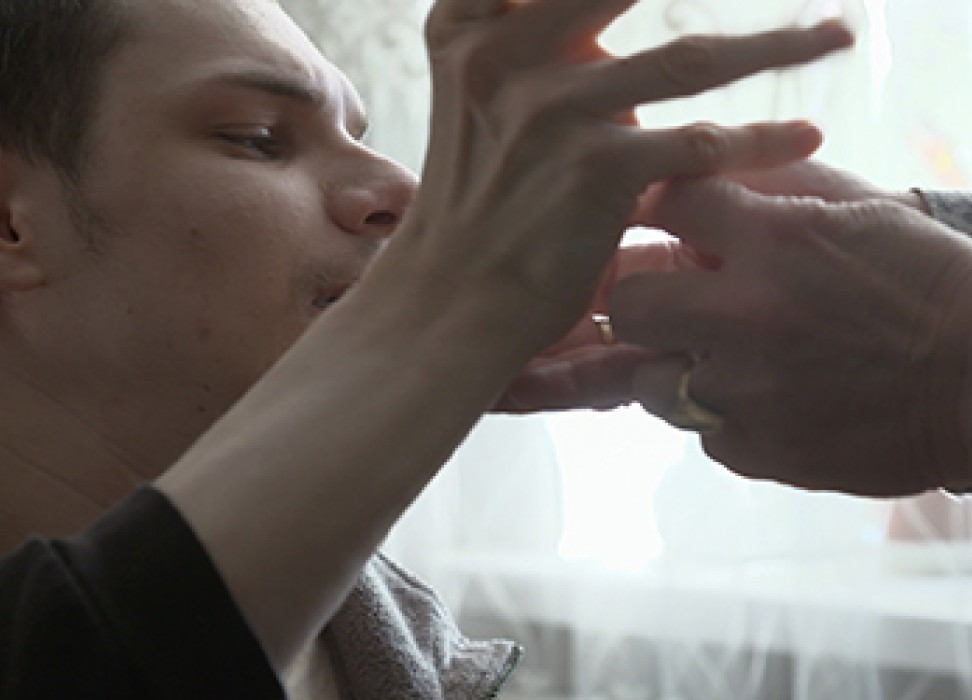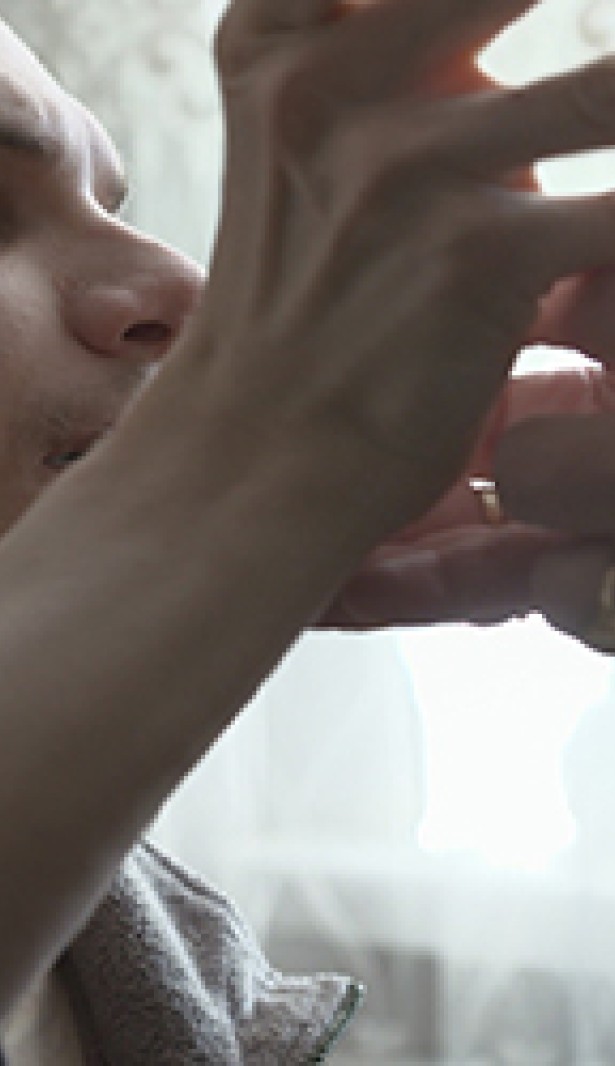Equality law empowers Moldovans to fight discrimination
21 July 2016

Ion Mamaliga’s body jerks back and forth as his mother Valentina lifts him off the couch so that he can move closer to the window. She sits him down on a sun drenched bed that is covered with stuffed animals. He laughs and smiles.
Ion is 21 years old and has cerebral palsy, a neurological disorder that permanently affects his body movements and muscle coordination. He has poor vision and has difficulties moving from one room to another in the two room apartment he shares with his mother and father in Chisinau, Moldova.
While Ion faces many challenges, Valentina says he enjoyed going to school where he explored his interests in Romanian literature, geography, and history. He relishes the time he spends with his brother and parents.
For years, Ion hasn’t been able to access basic services that many people with disabilities are given in other countries. So, his mother has been taking care of him full time – a role she takes immense pride in. But, many disabled are left out without the help they need.
“On the one hand you love your child, but when you have one with a disability [in Moldova], you are left on the outside and no one hears our voices,” Valentina says.
In 2012 a new law on social inclusion for people with disabilities, which the UN Human Rights Office has always supported, provided more protection for people with disabilities and gave Ion and many with physical disabilities the right to a personal assistant. So, his retired mother applied to become his official personal assistant so that she could receive benefits that would enhance her role as caretaker. But, she was denied. The State said that she was too old to take care of him.
Her fight didn’t end there. Valentina was able to file a complaint based on discrimination because of the Moldovan Law on Enforcement on Ensuring Equality that was adopted in 2013. The non-discrimination law fights discrimination and sets out to ensure equality in all spheres of life for all citizens of Moldova as well as other persons under Moldovan jurisdiction regardless of their race, ethnicity, language, religion, sex, age, limited abilities, or any other ground.
This law has provided an essential tool for fighting discrimination in a country that considers this issue to be one of its dominant challenges, especially those with mental and physical disabilities, the elderly, the LGBT community, and women.
The Council on Prevention of and Fighting Against Discrimination and Ensuring Equality was created under the Equality Law to review these discrimination complaints and determine their validity. The council said that Valentina was victim of discrimination and recommended to the authorities to grant her the status of Ion’s personal assistant even though she is of retirement age. While this law has proven instrumental for so many to fight discrimination, it is now in danger of being repealed. Parliament will rule on this proposal by the representatives of the Socialist Party later this year.
Veaceslav Balan, UN Human Rights Office Coordinator in Moldova, says the Equality Law, a law that the Office supported for its adoption and continues to promote, is a crucial instrument because it sets a clear framework on how to protect all people from discrimination.
It has also seen results. Since the law’s inception, the Equality Council has found discrimination in more than 100 cases. Balan stresses that repealing it will be detrimental to everyone living in Moldova. The public perception of the law is that it only benefits the LGBT community, which is not the case.
The Office has started a campaign with the help of several local civil society organizations including Genderdoc-M, the only LGBT organization in Moldova, to raise awareness of the benefits of the law and to convey the message that it is a law that serves everyone.
Valentina feels that her voice has been heard and the law has enabled her to take better care of her child.
“We definitely need this law because it protects our rights,” she said. “When you have a disabled child no one hears your voice, so this law helps us get out of this vicious cycle,” she says.
21 July 2016

